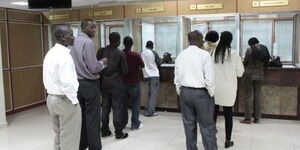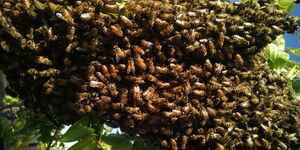Transport Cabinet Secretary James Macharia has explained why commercial planes are still allowed to carry full capacity despite the risk of Covid-19.
CS Macharia was speaking in a forum on Wednesday, January 6, 2021, and was responding to a question from NTV anchor Dan Mwangi who asked why road transport vessels were only allowed a maximum of 60% of normal capacity, yet planes were full of passengers.
“You cannot board any international aircraft without a PCR -ve certificate. That doesn’t apply to matatus where one can just jump in and jump out.
“In terms of the airlines, their systems have been proven that when you are within the aircraft, the ecosystem sucks out 99% of the viruses from within the aircraft’s compartments which makes it a much safer environment compared to the matatus,” he explained.
The CS added that in addition to the safety features, it is also not commercially viable for aircraft to operate on less than 75% of their normal capacity.
According to multiple medical and aircraft journals, planes have a High Efficiency Particulate Air (HEPA) filter which helps purify the air in the cabin.
In addition to aeroplanes, these filters are used in operating rooms and other sterilized clean rooms.
That means that, on planes which have the advanced technology, the airflow “mirrors the laminar airflow of an operating room with no or minimal crossover of air streams,” explained Doctor Bjoern Becker of the Lufthansa Group of airlines.
Air is pumped into the cabin at a speed of 0.9144m/s and sucked out again below the window seats.
About 40% of a cabin’s air gets filtered through this HEPA system; the remaining 60 %is fresh and piped in from outside the plane.
The sophisticated air circulation system enables a complete exchange of air in about 3 minutes.
The Covid-19 negative tests also ensure that passengers on the flight are safe, unlike matatus which don’t require those certificates.
As with most technology, HEPA filters should be inspected regularly and replaced as needed.
However, the explanation from the CS raised questions from Kenyans who argued that despite the safety features, the first case of Covid-19 was imported from an aircraft passenger.
{"preview_thumbnail":"/files/styles/video_embed_wysiwyg_preview/public/video_thumbnails/IFizZp5Y6I8.jpg?itok=mNJzs8ME","video_url":"","settings":{"responsive":1,"width":"854","height":"480","autoplay":0},"settings_summary":["Embedded Video (Responsive)."]}












